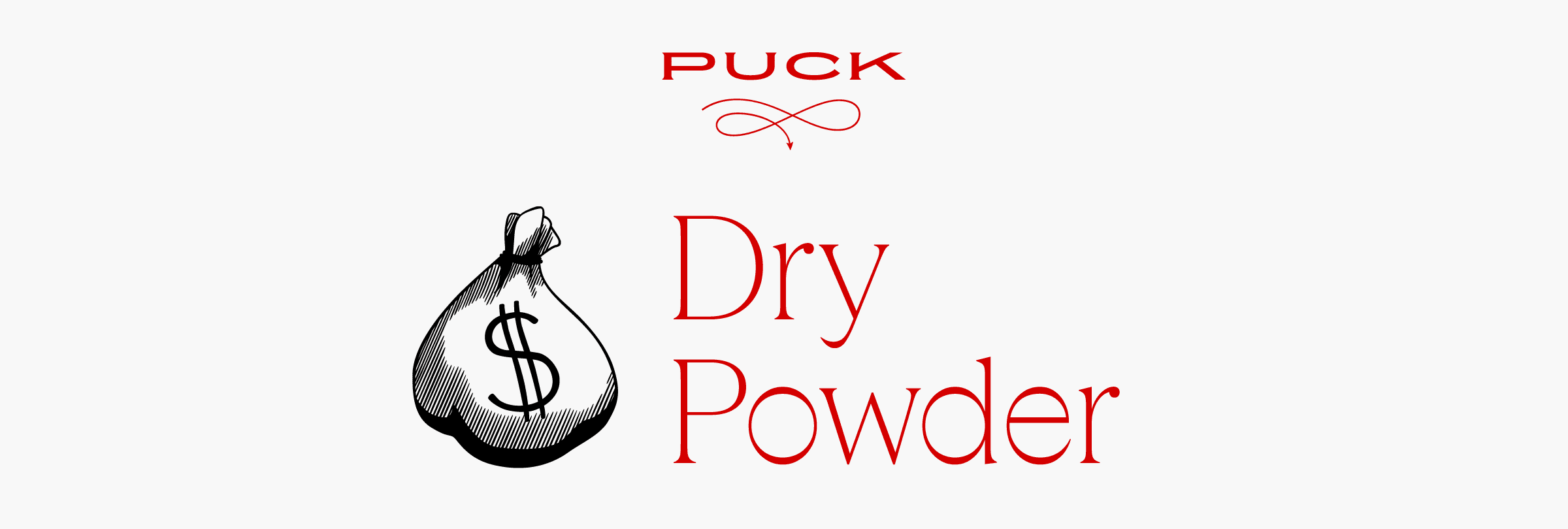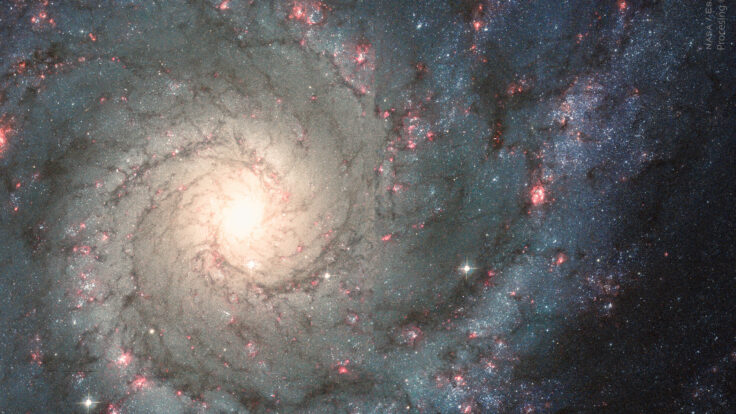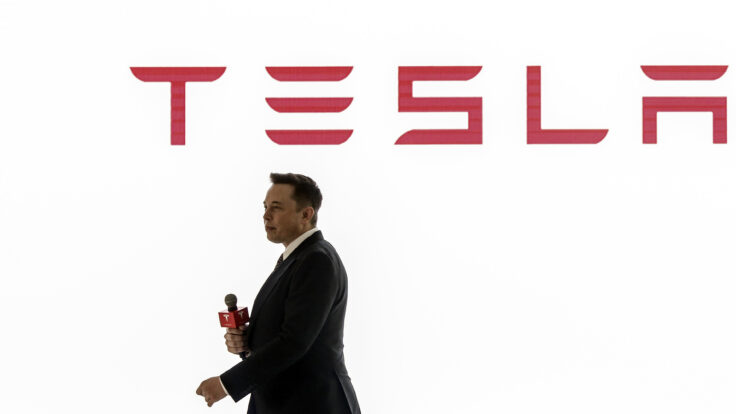 |
 |
|
Welcome back to Dry Powder, I’m Bill Cohan.
Just like the collapse of Ron Perelman before him, the decline of Carl Icahn is riveting Wall Street. There are many reasons for Carl’s troubles, but most of them stem from the same shortcomings that ended up plaguing Napoleon: hubris and arrogance. In today’s issue, a close look at how the 88-year-old Icahn lost some $20 billion in recent years.
But first… a few updates from the media world and the Zazplex from my partner Dylan Byers, whose private email returns on Friday…
- A little U.S. Open deal heat?: On Sunday, a rather idyllic late-summer day in New York, I was fortunate enough to find myself in a box at the men’s final of the U.S. Open. This provided an ideal vantage on both the players below (alas, Sinner shut out Fritz in three straight sets) and the myriad heavies sprinkled throughout the suitescape. There, four rows ahead of me, was Bill Ackman—straining at one point to take a photo of Taylor Swift and Travis Kelce—and, two rows ahead of him, Mike Bloomberg in a comfy bright orange sweater. A few rows back, sitting with American flag-bandanna’d Matthew McConaughey, was a sinister looking Ari Emanuel, assassin-like in all black and calling to mind the infamous tennis scene from Hitchcock’s Strangers on a Train.
The list continues, far too long to recount. From the media world: Dame Anna and Condé chief Roger Lynch (seated on opposite sides of the stadium), Don Lemon and his beau, several Today show co-hosts, etcetera. From the realm of politics, go figure, Michael Cohen and Ted Cruz (the latter of whom was in the front row, above the Chubb logo).
As you’ve no doubt heard by now, many of the most notable moguls were convened in David Zaslav’s suite, which was conveniently located across the court from me at eye level, allowing me to gain a near-complete inventory of his guests. Most notably, Elon Musk, whose presence caused something of a stir and was inevitably frowned upon by some CNN insiders who begrudged their boss’s overt association with what one described as an “incendiary dogwhistler.” (Zaz, I am reliably told, also hosted Musk at his home in the Hamptons last month.) There, too, were Barry Diller, in gold and khaki, and Bobby Kotick, and behind them CNN’s own Fareed Zakaria and international man of mystery Vivi Nevo—a real motley murderer’s row.
Meanwhile, the most notable guests in Zaz’s box may have been two guys hidden a little further from view, and whose presence hasn’t been accounted for: David Ellison, whose Skydance Media is in the process of acquiring Paramount, and Paramount interim co-C.E.O. George Cheeks. As I later learned, their attendance may augur some dealmaking: I’m reliably told that Zaslav and Cheeks have been discussing bundling their two streaming services, Max and Paramount+. (As Bill has noted in these digital pages before, Zaz believes we are entering media’s era of collaboration—one of its few tools to combat the tech giants.)
Of course, Cheeks is leading those talks because Ellison and his Paramount Global president-to-be Jeff Shell aren’t allowed to participate in such negotiations until the deal closes. And of course, it’s possible that there could be some regulatory intervention or that competitors could move to block such a combo, just as FuboTV moved to block Venu. In any event, that ball’s in play.
- A quick word on the Bob-on-Bob violence: By now, I’m sure, everyone has indulged in Jim Stewart and Brooks Barnes’ riveting and cinematic account of the war between Bob Iger and Bob Chapek—or, as they call it, “the palace coup” at Disney. This is practically the only thing anyone in my world has wanted to talk about this week, and with good reason: In vivid detail, Stewart and Barnes expose a sad and depressing corporate fiasco fueled by the pettiness and incompetence of almost all involved—most notably, Iger himself, a near-universally revered generational chief executive whose dark side has now been exposed. There are so many memorable scenes here, but most jaw-dropping are Iger’s push to rush the succession process—without interviewing other candidates—and the accounts of Iger undermining Chapek and then lying to him about it. (Our partner Matt Belloni published a list of the best quotes here.) The consensus from my best-placed Hollywood and Wall Street sources is that there’s no way Iger can be trusted to lead the succession process this time around.
Meanwhile, the piece is also remarkable for just how deeply the reporters penetrated the C-suite and the board—and, in doing so, broke the omertà that has long existed around Disney, generally, and Iger, specifically. We have no similar revealing stories from Staggs, Mayer, Rice, et al.—largely because they understood that the first rule of Disney is you don’t talk about Disney. Obviously, Chapek has nothing to lose and was thus willing to exact revenge via a thinly veiled suicide mission.
But it’s clear from the piece that Stewart and Barnes talked to all of the other principals, as well, including Iger, Susan Arnold, Alan Bergman, and so on. Everyone mentioned in the piece seems to have played ball.
- Zucker’s game: After being forbidden from acquiring U.K. media assets, Jeff Zucker’s RedBird IMI has succeeded in offloading The Spectator to hedge fund chief Paul Marshall, and for a considerable £100 million. Per the FT, the higher-than-expected price is five times what the Barclay brothers paid for the conservative magazine two decades ago. “Analysts at Enders had suggested that a value of about £40mn would be more realistic for a magazine that generated £2.9mn in earnings before interest, tax, depreciation and amortization on revenues of £20.8mn in its last set of accounts for 2022,” the FT writes.
Now, of course, Zucker is in negotiations to offload The Telegraph, and I’m reliably told—and Semafor is now reporting—that New York Sun publisher Dovid Efune has entered the fray.
|
 |
| Pop Icahn |
| Now 88 years old, Carl Icahn has seen his personal fortune dwindle by some $20 billion in recent years. Has he lost his edge, or is something else afoot inside his holding company? Anyway, we chatted about it. |
|
|
|
| There’s a poignant, telling scene in the 2022 HBO documentary Icahn: The Restless Billionaire, about legendary investor Carl Icahn—the self-made man from Far Rockaway, who majored in philosophy at Princeton, became one of the earliest aficionados of Mike Milken’s junk bonds, and leveraged it all into Icahn Enterprises. Standing before a grand depiction of Napoleon’s great victory over the Russian Army at the Battle of Friedland, Icahn begins pontificating on how the artist, Ernest Meissonier, had captured a moment in the emperor’s life “before hubris took over” and “took it all away from him.” Carl continued, “He was a great strategist, no question, but then he lost it all because of arrogance. That’s one thing you have to remember. It doesn’t stay forever, if you’re not careful.”
Although he wasn’t doing so in the documentary, Carl might also have been talking about the toll hubris and arrogance have taken on his own fortune. Back in 2015, he was worth nearly $24 billion, according to Forbes, but these days his net worth is closer to $5 billion—maybe less—and it remains under considerable strain as the stock price of Icahn Enterprises continues to shrink. The stock has fallen 51 percent in the past year, and is down 84 percent over the last half-decade. (Carl owns 85 percent of the company’s stock.) For a renowned investor, that’s not a great fact pattern—especially when the S&P 500 is up 81 percent over the same five-year time period. Icahn Enterprises stock is now trading at its lowest level in 20 years.
Just like the collapse of Ron Perelman before him, the unraveling of Carl’s fortune is riveting Wall Street. There are many reasons for Carl’s troubles, but most of them stem from the same shortcomings that ended up plaguing Napoleon: hubris and arrogance. When I spoke with Icahn this week, he agreed with this assessment. “There’s one word: hubris,” he said. “People are destroyed by it. I think it was hubris with me. It wasn’t enough that I had a great paradigm that we did, and I was very good at it, which was: Go to a company, work with them, talk them into getting me on the board, sometimes do a proxy fight, sometimes be feared. I had beautifully worked it out. And then I decided that I could really figure out what the market was going to do, which is sort of crazy. And I realize now that’s the dumbest thing you could do.”
|
|
A MESSAGE FROM OUR SPONSOR
|
 |
| Get a custom-made IRA from Betterment.
Choose where and when you want to retire, and a Betterment IRA can help make your money hustle all the way there.
Learn More.
|
|
|
|
|
| Part of the problem is what Carl has chosen to invest in these days, through Icahn Enterprises, and how he chooses to value those investments. To wit: He owns 91 percent of Viskase Companies, which makes casings for the meat-packing industry. The company’s stock, down 40 percent this year, is valued at $135 million in the market, but Carl values his holding at $300 million, due to a “lack of trading volume” in the public markets, according to his latest investor PowerPoint presentation.
That’s an interesting assumption. He owns 66 percent of CVR Energy Inc., a refiner and marketer of fuel whose stock is down 39 percent year-to-date. He values his stake in the company at $1.8 billion, or 78 percent of its market value, which is another interesting assumption. Other lowlights include a 9 percent stake in Bausch Health (down 26 percent on the year) and a 4 percent stake in Caesars Entertainment (down 31 percent).
He also owns a slew of private companies, which some Icahn watchers on Wall Street think he overvalues. Icahn Enterprises controls 100 percent of the Icahn Automotive Group, which owns Aamco and Pep Boys (not the Paramount executives), among other auto repair shops. According to Icahn’s August portfolio valuation, the automotive group had “adjusted EBITDA” of $117 million in the 12 months ended June 2024. Carl values the company’s equity at roughly 15x that number, or $1.5 billion. Sounds high to me, but what do I know?
Icahn also owns 100 percent of WestPoint Home, the big textile manufacturer, which has been barely break-even for years. Boom: $160 million valuation. He owns 100 percent of Vivus, a specialty pharmaceutical company, which is also barely break-even. Carl’s valuation? $217 million. For what it’s worth, in our conversation, Carl offered up lots of reasons why his private market valuations made sense, from the value of the real estate in his automotive group to the value of the inventory at WestPoint Home. (In the case of Vivus he was more circumspect, but I suspect there may be some potentially successful drugs in the Vivus pipeline that could justify his valuation.)
Then there are Carl’s real-estate holdings, which he values at $434 million. They include the vacant lot in Atlantic City that used to be the site of the Trump Plaza casino. Carl, of course, was one of Trump’s largest creditors when his various casinos went bankrupt. He also owns the old AT&T office tower in Atlanta, with more than 1 million square feet of space. The building recently lost its only tenant and is now vacant. But Carl has continued to mark up the value of the building and now lists it as being worth something like $130 million based, according to a footnote in his S.E.C. filings, on what he thinks the building would be worth if it were fully leased. That’s not exactly the way vacant buildings are valued—trust me. (He said in our chat that he thinks maybe a third of the building has been re-leased but he wasn’t sure.)
These are the kinds of valuations that drive his Wall Street critics nuts. The so-called “other operating segments” of Icahn Enterprises—the privately held real estate, the pharmaceutical company, the auto maintenance businesses—have consistently been valued at around $2.6 billion by Carl, year after year, despite making barely any money. “He’s intentionally not transparent about how he values these things,” one of his critics told me, “but virtually all of them show signs of impairment and have been held flat for years.” The critic tells me that in his analysis of Icahn Enterprises, he discounts these private holdings by 50 percent.
|
|
|
| Then there are the dual problems of too much leverage and not enough liquidity, which together are often enough to sink any company, especially when confidence is lost. And that seems to be what’s happening to Icahn Enterprises, thanks in large part to a devastating May 2023 research report from short seller Nate Anderson, at Hindenburg Research, which brought attention to Icahn’s personal margin loans, the company’s growing debt, its unsustainably high dividend, and the illiquid positions in the portfolio. At the time, according to Anderson, the stock was overvalued by something like 220 percent compared to the net asset value of the portfolio. “Icahn has been using money taken in from new investors to pay out dividends to old investors,” Anderson wrote. “Such Ponzi-like economic structures are sustainable only to the extent that new money is willing to risk being the last one ‘holding the bag.’”
Since Anderson’s report came out, Icahn Enterprises’ stock has collapsed 80 percent. Carl brushed this off and told me he didn’t believe Icahn Enterprises was a Ponzi scheme because he’s under no obligation to keep paying the dividends and can stop them anytime, and because he has made no promises to anyone about potential returns or whether he would keep paying the dividends.
After the research report dropped, Carl referred to Anderson’s firm as “Blitzkrieg Research” because of its “tactics of wantonly destroying property and harming innocent civilians.” He recently told The New York Times that he considers Anderson’s analysis of Icahn Enterprises to be “total lies and extremely misleading.”
|
|
|
|
|
| In February 2022, before Anderson’s bombshell report, Icahn Enterprises disclosed in an S.E.C. filing that Carl had pledged approximately 168 million shares for a margin loan from a group of Wall Street banks, a margin loan that eventually reached $3.7 billion. Carl said the IEP stock didn’t budge after that disclosure. But after the Hindenburg report, Carl renegotiated the margin loans so that the fluctuations in the price of the IEP stock would not prompt a margin call. (He ended up paying a small, $2 million fine to the S.E.C. for failing to disclose the loan prior to February 2022.)
He’s now also facing an investor lawsuit alleging that his failure to timely report the loan was “an undisclosed scheme to use heightened dividend yields as an inducement to buoy or inflate the trading price” of Icahn Enterprises’ stock and to use “money taken in from new investors to pay out dividends to old investors.” Icahn Enterprises also has nearly $5 billion of debt at the holding company level, with maturities a few years out.
Alas, with “adjusted EBITDA” for the 12 months ended June 2024 of a mere $231 million, there isn’t a whole lot of room for error. In fairness, Icahn does have $2.2 billion in cash, which he uses to pay an absurd 37 percent dividend on the stock—the annual $4-a-share dividend paid by the current stock price—and he can use it to pay interest on the company’s debt and future amortization payments. He told me he’s got plenty of money for a rainy day, something he has done intentionally in order not to be forced into a panic situation.
|
|
|
| Icahn also reported a $1 billion loss of net asset value in the portfolio in the second quarter of 2024. “Losing 20 percent in a quarter is, I think, probably pretty scary when you are a margin lender and your collateral is that stock,” explained one Wall Street observer. He surmised that Carl’s margin lenders had stepped up the pressure on him to pay down the loan and had put him on a payment schedule. Every quarter he has to pay a certain amount, with a bigger payment at the end. He said he thought Carl recently paid down $1 billion of the margin loan, putting the balance at $2.7 billion. (Carl confirmed to me that he had paid down $1 billion of the margin loan.) This person told me that he was also worried that Carl has lost more money on his investments in the third quarter, given the recent hiccups in the equity markets. He estimates that Carl will have another $300 million in mark-to-market losses in the third quarter unless there is a dramatic turnaround in the stock market this month.
At the end of August, Carl announced that Icahn Enterprises would sell up to $400 million of the stock units in the company for general corporate purposes and to make acquisitions through Jefferies, the investment bank, but without a traditional underwriting. The news that the company was selling stock—Carl denied to the Times that he was selling any of his personal stock—sent the Icahn Enterprises stock plunging nearly 15 percent. Of course, since the stock continues to trade above the portfolio’s net asset value, any time the company sells stock, Carl makes money, as its largest shareholder by far. After the May 2023 Hindenburg report, Carl announced a $500 million stock buyback, but Anderson tweeted on August 19 that he believes Icahn has not bought back any stock. Instead, he’s sold some $100 million of stock at the market prices over the past two quarters, “continuing to dump overvalued shares on unsuspecting retail investors.” He also said Hindenburg remains short Icahn Enterprise shares.
Carl’s critics think he’s using the high dividend to attract investors to the stock, but that he doesn’t really have the earnings from his investments to keep paying the dividend. “The company is still operating a Ponzi-like structure, as we originally alleged,” Anderson tweeted in August. “Icahn Enterprises lost almost $1 billion last quarter alone yet is paying out a distribution equivalent to annualized 47 percent of its net asset value.” He added that “rather than blame us for his own investment failings, Icahn should put his money where his mouth is” and buy back his stock if he thinks it is undervalued, rather than sell the stock because he knows it’s overvalued. Carl’s response? “Just to state the obvious, there’s a misinformation campaign going on by people that are short, of course.”
The Icahn critic I spoke to thinks Carl is in a very tight spot. “He’s just got a series of not-great options, but some of those are potentially catastrophic. And I think actually in this case, selling as much overvalued stock as [the company] can to put cash to the balance sheet is probably the right decision, but it doesn’t look great.”
This person said that he can’t understand how Carl, who is 88, got himself in this position. “If you’ve got $20 billion, do you really need the next billion?” he wondered. “Like, what’s the point? Like, hang out with your family and friends and stuff like that. You know, great career, but you can’t take it with you.”
|
|
|
|
| FOUR STORIES WE’RE TALKING ABOUT |
 |
|
 |
|
 |
|
 |
| Legends of the Fall |
| Detailing the fall’s most highly-anticipated art exhibitions. |
| MARION MANEKER |
|
|
|
|
|
 |
|
|
|
Need help? Review our FAQs
page or contact
us for assistance. For brand partnerships, email ads@puck.news.
|
|
You received this email because you signed up to receive emails from Puck, or as part of your Puck account associated with . To stop receiving this newsletter and/or manage all your email preferences, click here.
|
|
Puck is published by Heat Media LLC. 227 W 17th St New York, NY 10011.
|
|
|
|













